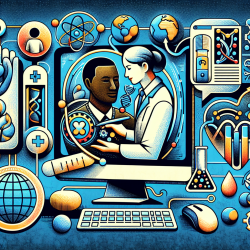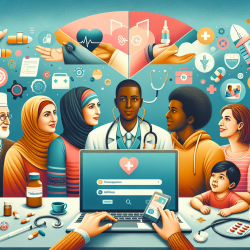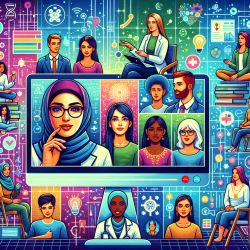The landscape of online therapy, particularly in special education, is rapidly evolving. One significant way to enhance the skills of practitioners is by integrating findings from global health research. A noteworthy article from the Journal of Global Health, titled "NEWS," provides valuable insights that can be applied to online therapy services. Here, we explore key takeaways from the research and how they can be implemented to improve online therapy practices.
Key Insights from Global Health Research
The article "NEWS" discusses various initiatives by the Bill and Melinda Gates Foundation and other organizations aimed at improving global health outcomes. Here are some of the critical insights that can be applied to online therapy:
- Innovative Approaches to Health Care: The Gates Foundation's Grand Challenges Explorations program encourages bold approaches to improving health care access. Similarly, online therapy can benefit from innovative strategies, such as integrating AI for personalized therapy sessions or using virtual reality for immersive therapy experiences.
- Partnerships and Collaborations: The foundation's collaboration with pharmaceutical companies to develop vaccines highlights the importance of partnerships. Online therapy providers can collaborate with educational institutions, tech companies, and healthcare providers to enhance service delivery and reach a broader audience.
- Focus on Accessibility: Efforts to develop affordable vaccines for low-income countries emphasize the need for accessible health solutions. Online therapy platforms should ensure that their services are affordable and accessible to all students, including those in underserved communities.
- Data-Driven Decision Making: The emphasis on data collection and analysis in global health initiatives can be mirrored in online therapy. Practitioners should leverage data analytics to track progress, identify areas for improvement, and tailor interventions to meet individual needs.
Implementing Research Insights in Online Therapy
To integrate these insights into online therapy, practitioners can take the following steps:
- Adopt Technology-Driven Solutions: Utilize advanced technologies like AI and VR to create engaging and effective therapy sessions. These tools can provide real-time feedback and adaptive learning experiences for students.
- Foster Collaborations: Establish partnerships with educational and healthcare institutions to share resources, knowledge, and best practices. Collaborative efforts can lead to more comprehensive and holistic therapy solutions.
- Ensure Accessibility: Develop pricing models and outreach programs that make online therapy accessible to all students, regardless of their socio-economic background. Consider offering sliding scale fees or scholarships for low-income families.
- Utilize Data Analytics: Implement robust data collection and analysis mechanisms to monitor therapy outcomes. Use this data to continuously refine and improve therapy methods, ensuring they are evidence-based and effective.
Encouraging Further Research
While the insights from the "NEWS" article provide a solid foundation, continuous research is crucial for ongoing improvement. Practitioners are encouraged to stay updated with the latest research in global health and online therapy. Engaging in professional development opportunities and participating in research studies can further enhance their skills and knowledge.To read the original research paper, please follow this link:
NEWS.










